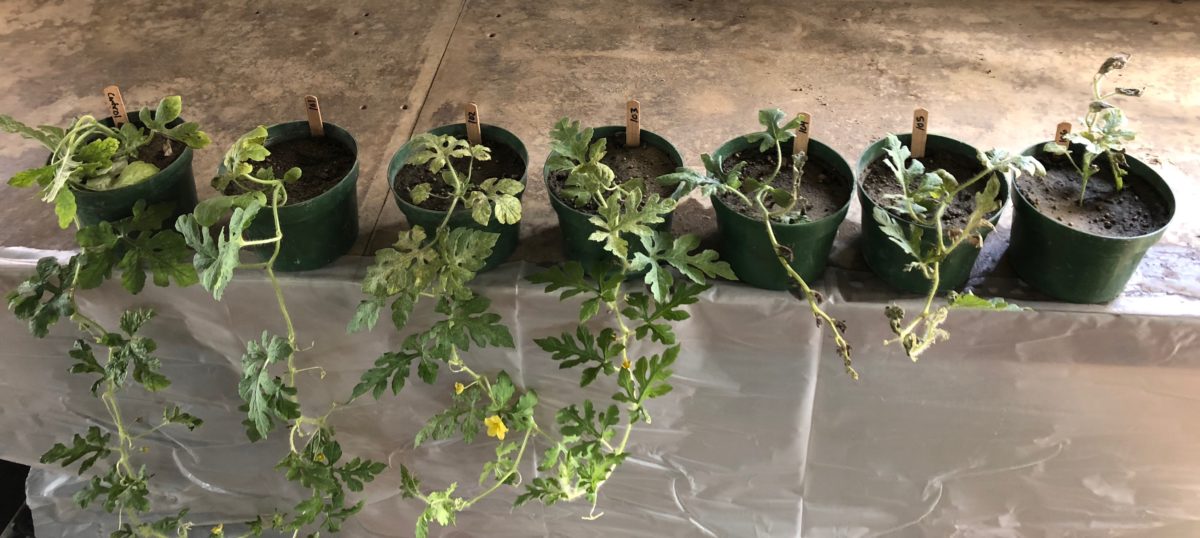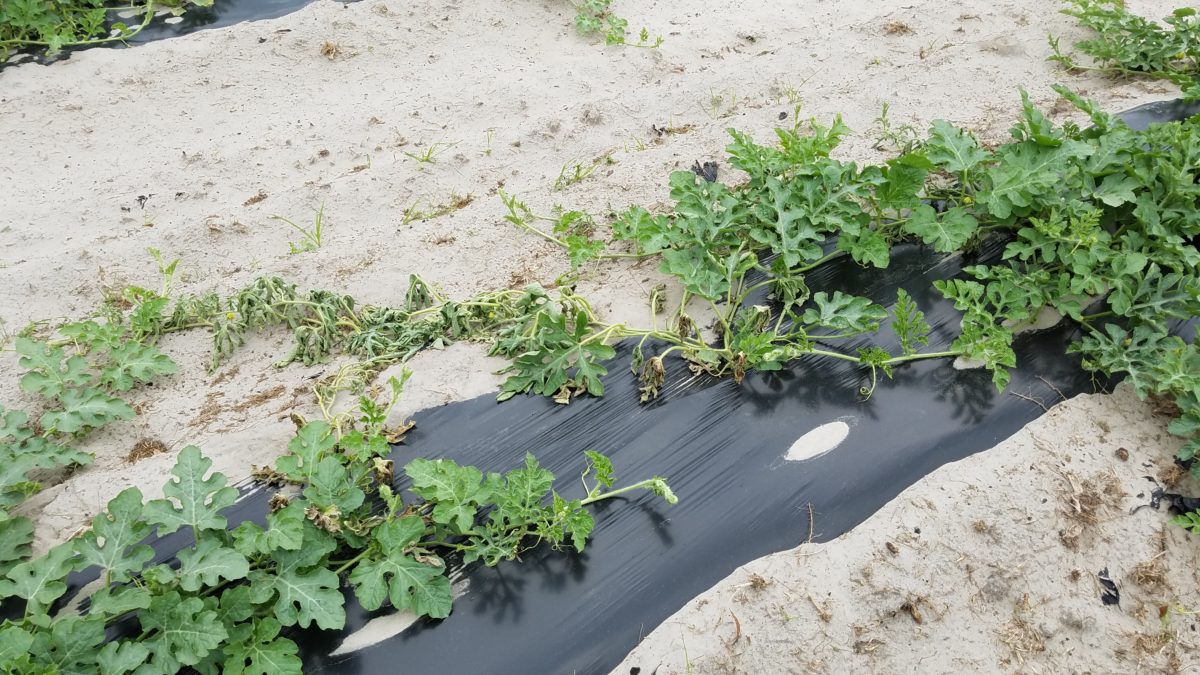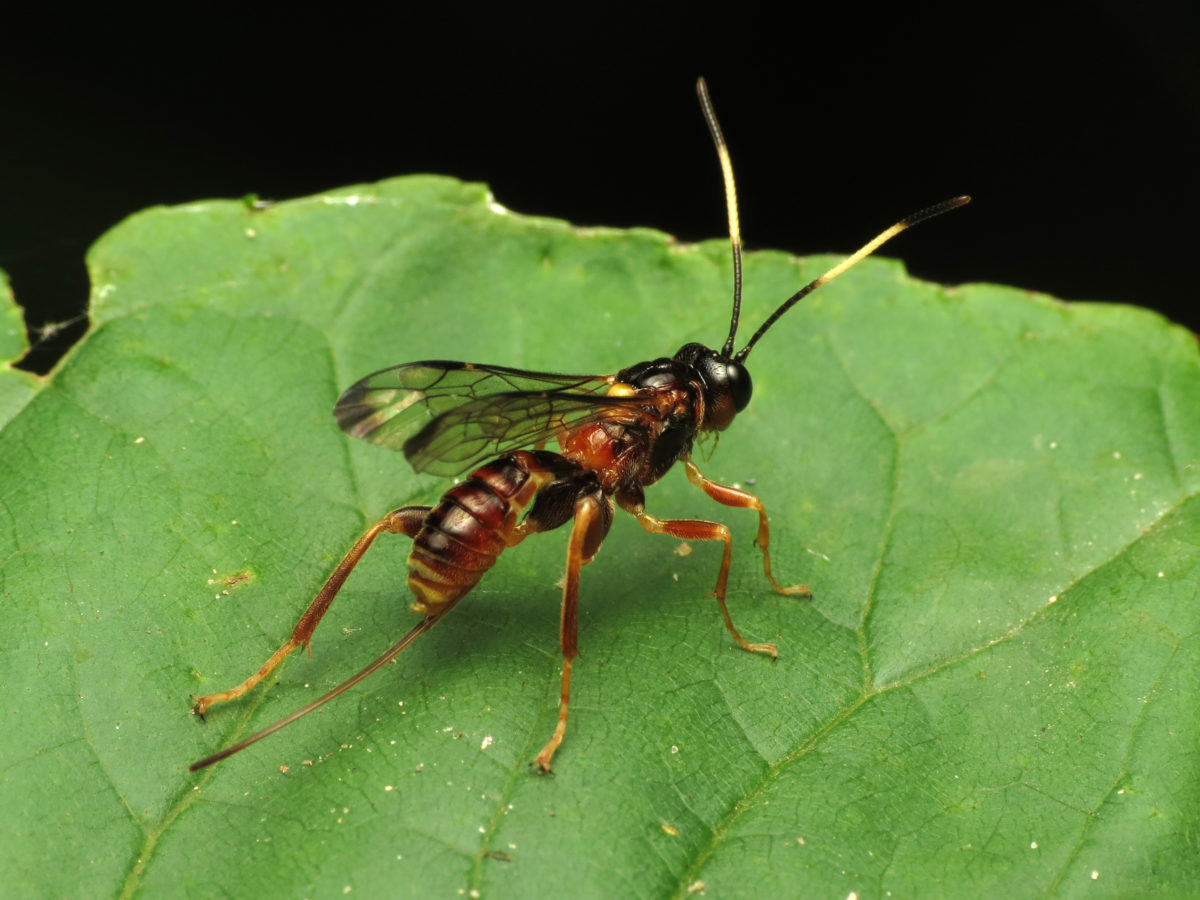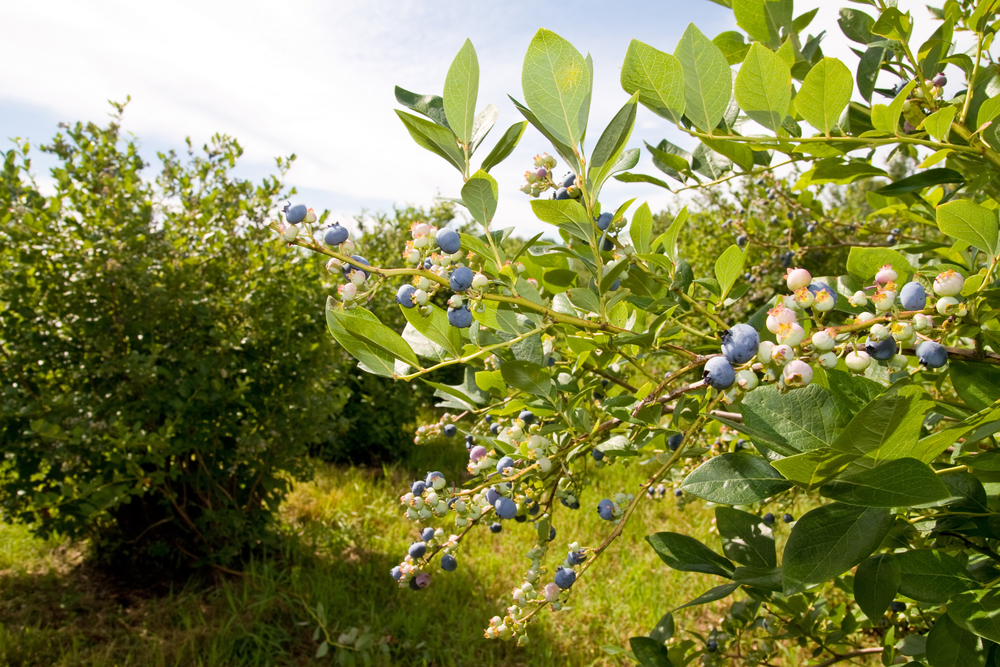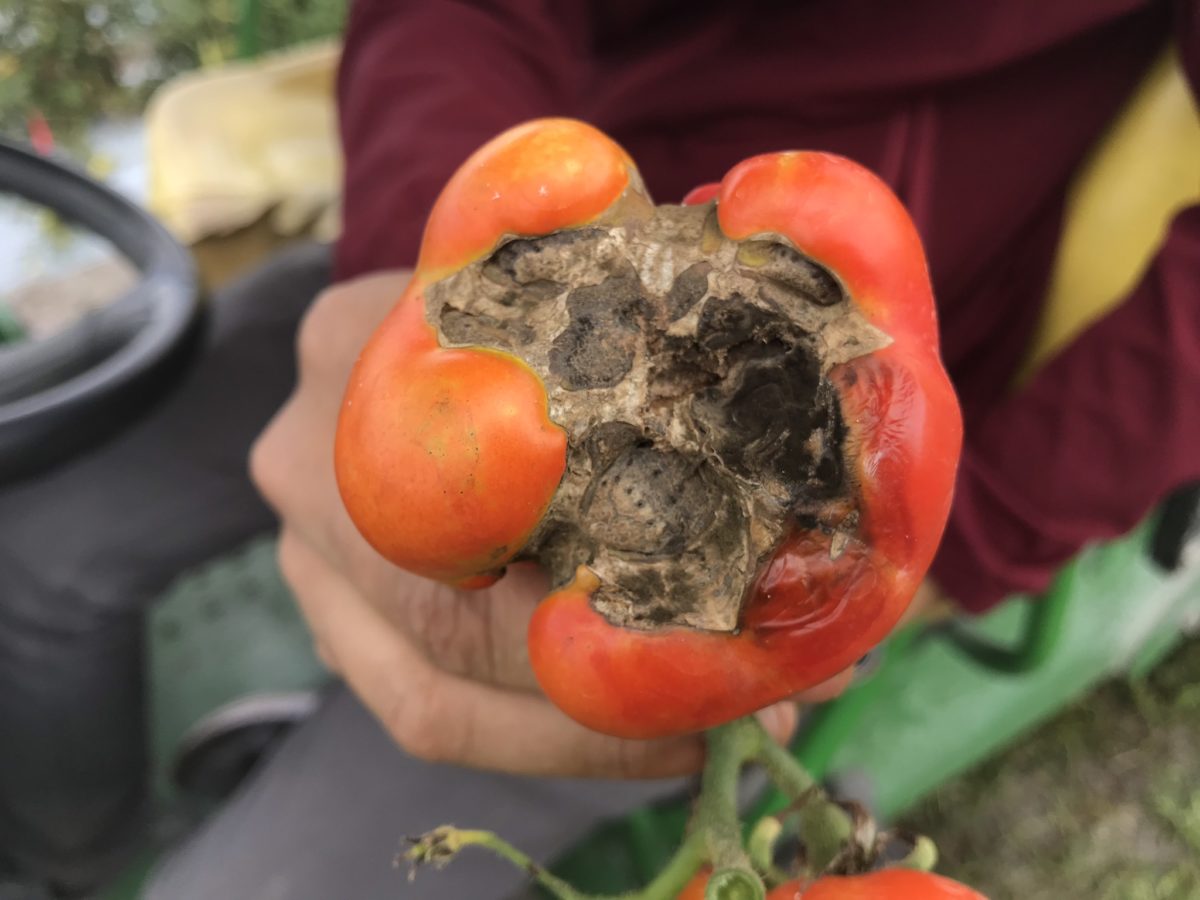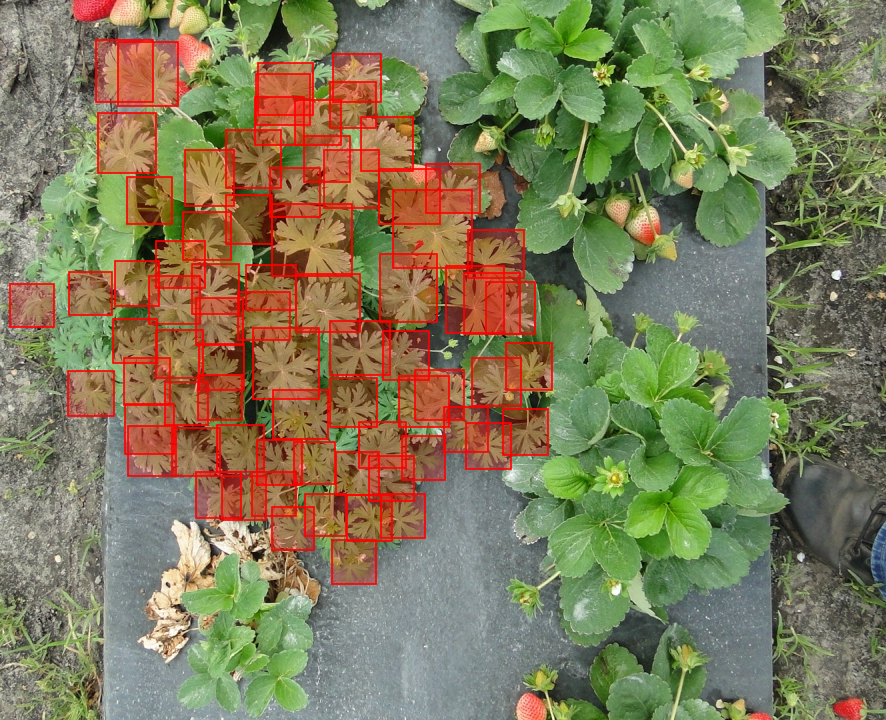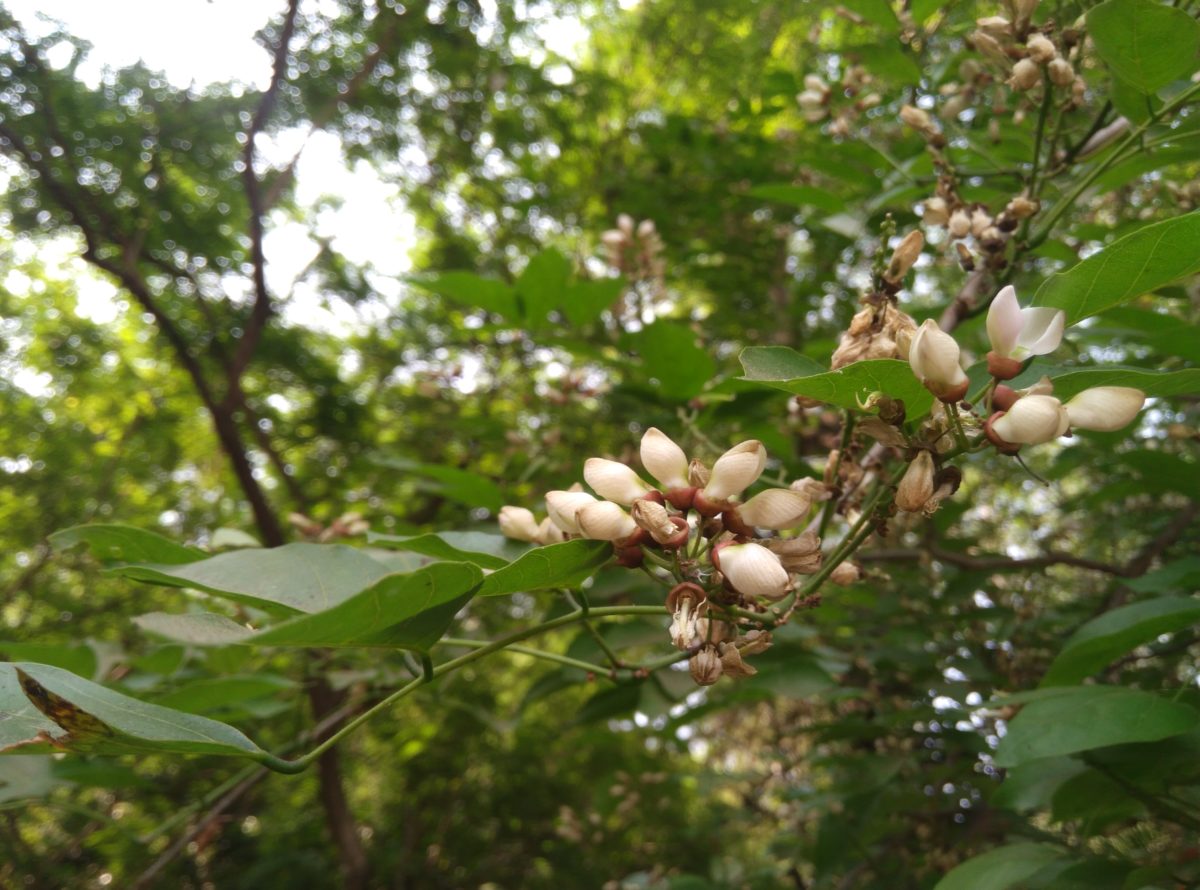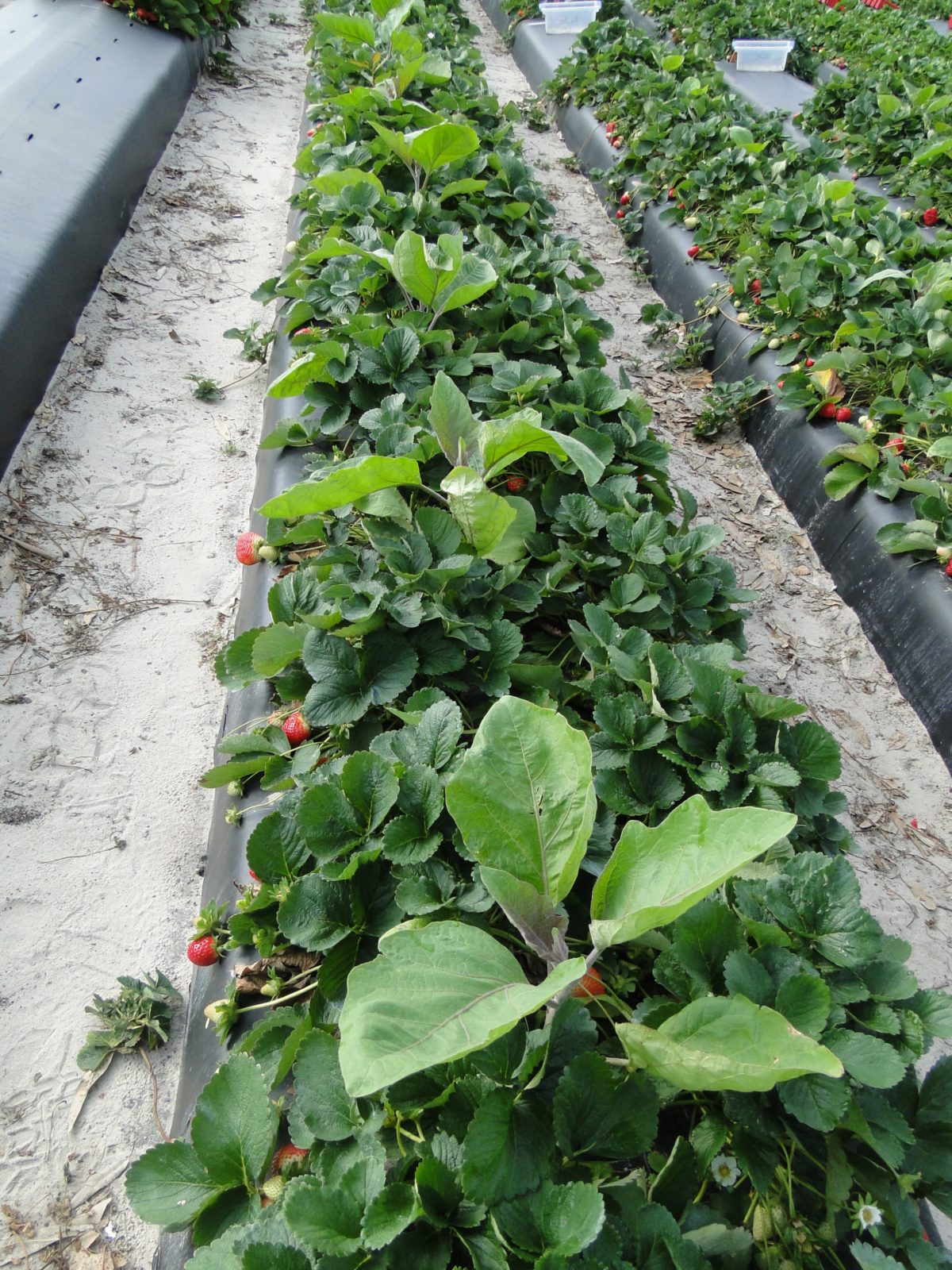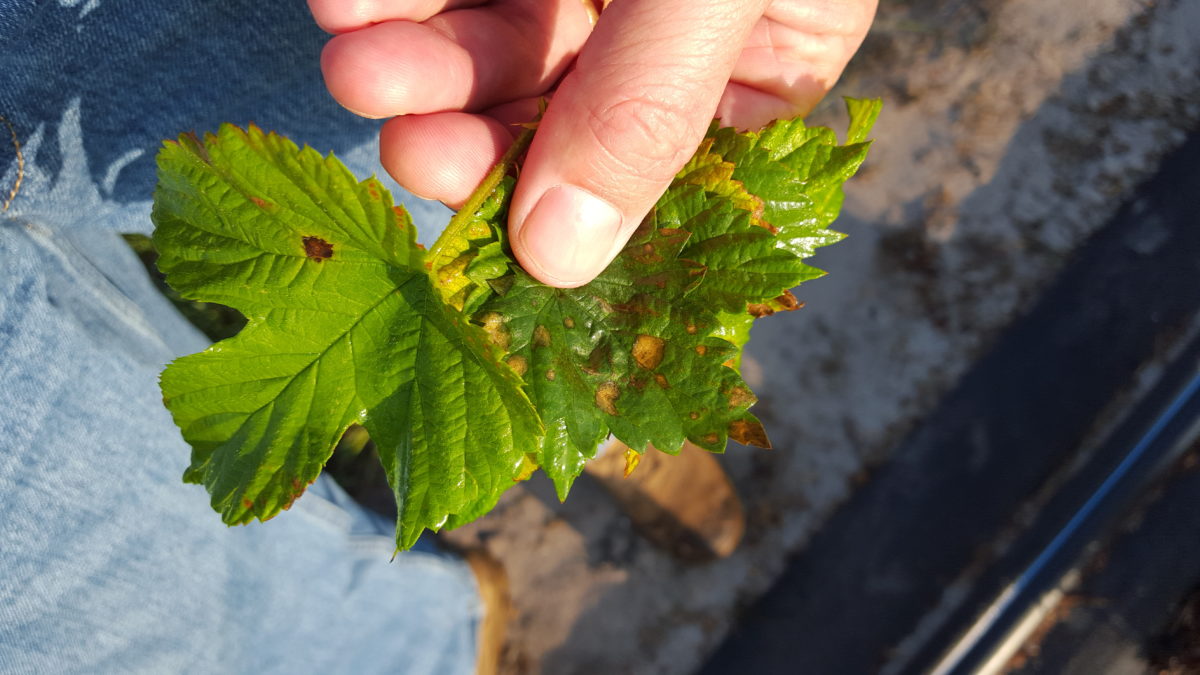Root-knot nematodes are many crops’ worst enemy, including watermelon. Abolfazl Hajihassani, vegetable nematologist with the University of Georgia, recently completed a study analyzing how the population density of nematodes impacts watermelon damage. He presented the results of this trial at the Southeast Regional Fruit and Vegetable Conference in Savannah, Georgia, in January. STUDY SUMMARY Hajihassani began the trial by inoculating …
Living with Fusarium Wilt
With multiple races that are increasingly aggressive, fusarium wilt has been a challenging disease for watermelon growers and a tough nut to crack for southeastern researchers. Nicholas Dufault, assistant professor and Extension specialist in the Plant Pathology Department at the University of Florida, says all races of fusarium wilt occur in Florida, but each is a little different. Fusarium wilt …
The Benefits of Beneficials
For organic growers, the tools to control pests are scarce. However, using insects to fend off pests may be a good option. Ayanava Majumdar, Alabama Cooperative Extension entomologist with Auburn University, has been studying the impacts of beneficials for years and is constantly getting questions from growers about how best to use these pest management tools. Majumdar says beneficials, or …
The Buzz on Blueberry Pollinators
Although blueberry growers spend much of their time and money keeping insects away, there are certain insects that are critical for their crop’s survival. Those insects are pollinators, bees in particular. If there are low populations of pollinators in the field, growers will eventually start to notice the repercussions. Rachel Mallinger, assistant professor in the University of Florida Entomology and …
Suppress the Weeds, Not the Crop
Understanding herbicide injury in tomatoes can help growers protect their investment. By Ramdas Kanissery, Nathan Boyd and Camille McAvoy Herbicides are designed to control undesired plants within a cropping system. Crop injury can occur when herbicides are applied incorrectly. For example, injury can be the result of drift, volatilization, runoff, tank contamination or misapplication of a product. INJURY SYMPTOMS Injury …
Smart Sprayer Technology for Better Weed Control
By Arnold Schumann, Nathan Boyd, Shaun Sharpe and Jialin Yu Most vegetable and strawberry crops in Florida are grown on raised, fumigated soil beds covered with plastic mulch and fertigated with drip tape. Fortunately, the plastic mulch suppresses most weeds that would otherwise grow rapidly and outcompete the crops in Florida’s warm subtropical climate. The open holes that are punched …
Peach Training and Pruning Pointers
By Ali Sarkhosh The excessive vegetative growth of low-chill peaches under tropical and subtropical climates can be one of the major problems negatively impacting fruit size and quality. Growers need to spend a significant amount of money and time for manual thinning and pruning to meet the market window. Factors affecting fruit quality include distribution of light in the canopy, …
Pongamia: A Crop to Consider
As citrus greening disease continues to challenge the Florida citrus industry, many growers are looking toward alternative crops to grow. One former citrus grower seems to have found his niche. Peter McClure, chief agricultural officer of TerViva, describes himself as a “lifelong citrus grower.” He is a fourth-generation Florida grower who has been a champion for the state’s citrus industry …
Growing Multiple Crops on the Same Plastic Mulch
By Nathan Boyd Vegetable growers throughout the Southeast face intensive economic pressure from foreign competition, volatile markets and increased production costs. Alternative production systems are needed that reduce input costs and increase economic return. One potential approach is to grow more than one crop on the same plastic mulch. The vast majority of horticultural crops in the Southeast are grown …
Florida Hop Trials — Keeping Ahead of Pests and Diseases
By Gary Vallad, Johan Desaeger, Hugh Smith, Zhanao Deng and Shinsuke Agehara Like other crops, hops are susceptible to various pests and diseases. The goal of this article is to review findings from ongoing field studies conducted at the University of Florida Institute of Food and Agricultural Sciences (UF/IFAS) Gulf Coast Research and Education Center (GCREC). The presented findings should …










